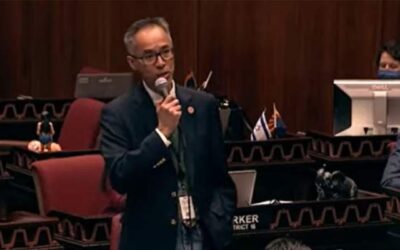On Wednesday, the Arizona Senate overwhelmingly voted to pass House Bill 2810, landmark legislation that would reform the state’s civil asset forfeiture law to significantly strengthen innocent Arizonans’ due process and property rights. The bill, HB 2810, sponsored by Rep. Travis Grantham, requires law enforcement to secure a criminal conviction before an individual’s property may be forfeited under the state’s civil asset forfeiture law, under most circumstances.
Currently, law enforcement may seize and keep property from individuals that are never charged or convicted of a criminal offense.
The bill previously passed the House with a strong 57-2 vote, and now heads to Governor Doug Ducey’s desk for his signature.
“This is an historic moment for the due process and property rights in the state of Arizona,” said Lauren Krisai, Senior Policy Analyst for Justice Action Network. “House Bill 2810 ensures that law enforcement cannot permanently take property from innocent Arizonans never charged or convicted of a crime—an egregious process that has gone on for far too long in the state. We thank Rep. Grantham for sponsoring this important bill, and lawmakers from both sides of the aisle for coming together to pass this critical reform. We hope Governor Ducey will sign this bill that better protects the constitutional rights of all Arizonans.”
Great news from the AZ Senate today! https://t.co/aagX2BWY7q
— Free Enterprise Club (@azfec) April 28, 2021
Currently, Arizona police are under no obligation to return property seized from someone suspected or accused of a crime, regardless of whether a conviction is obtained. In 2018, 54% of all forfeitures in Arizona were not tied to a criminal conviction. To address this crucial issue, House Bill 2810:
- Requires a criminal conviction before most forfeitures may take place;
- Ensures that seized property is linked to a suspected crime;
- Requires law enforcement to return seized property in a timely manner if they decide not to pursue criminal charges or lose the case in court;
- Strengthens innocent owner protections by requiring the state to prove that the property is linked to a crime, and return property if it is not. Current law requires innocent owners to prove that their seized property *is not* connected to a crime.








